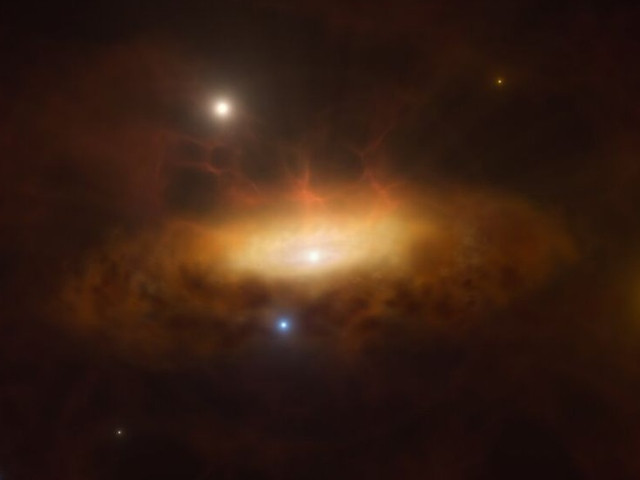Nearby galaxy's dormant black hole shows signs of awakening
The ongoing four-year flare suggests an unusual event, possibly involving the shredding of a star

In December 2019, astronomers using the Zwicky Transient Facility, located on California's Palomar Mountain, detected an unexpected burst of light from a distant galaxy in Virgo, about 300 million light-years away.
This flare, which has persisted with fluctuations over the past four years, defies conventional cosmic phenomena due to its prolonged duration.
According to Paula Sánchez-Sáez of the European Southern Observatory, the galaxy SDSS1335+0728 hosts a massive dormant black hole at its center.
The flare is theorized to be caused by the black hole awakening from dormancy and devouring surrounding gas, which heats up intensely before falling into the black hole.
This phenomenon, if confirmed, would mark the first direct observation of a black hole transitioning from a dormant state to an active phase.
The black hole in question is significantly larger than our Sun, and had been dormant for at least two decades before the flare event in 2019.
Lorena Hernández García, a co-author from the Millennium Institute of Astrophysics in Chile, emphasized that such a prolonged and intense flare has never been observed before in real-time for this type of galaxy.
Analyzing data from multiple telescopes, astronomers observed that SDSS1335+0728 is now emitting significantly more light across various wavelengths, including ultraviolet, optical, and infrared.
The ongoing four-year flare suggests an unusual event, possibly involving the shredding of a star that ventured too close to the black hole. However, typical stellar disruptions by black holes usually last only a few hundred days at most.
This extended flaring is distinct from supernovas, explosive events that result from stars depleting their fuel and typically last for days to months.
The mystery behind the prolonged glow continues to puzzle astronomers, as they seek to understand the processes governing black hole behavior and its impact on galaxy evolution over cosmic timescales.












1726134115-0/BeFunk_-(41)1726134115-0-208x130.webp)






COMMENTS
Comments are moderated and generally will be posted if they are on-topic and not abusive.
For more information, please see our Comments FAQ